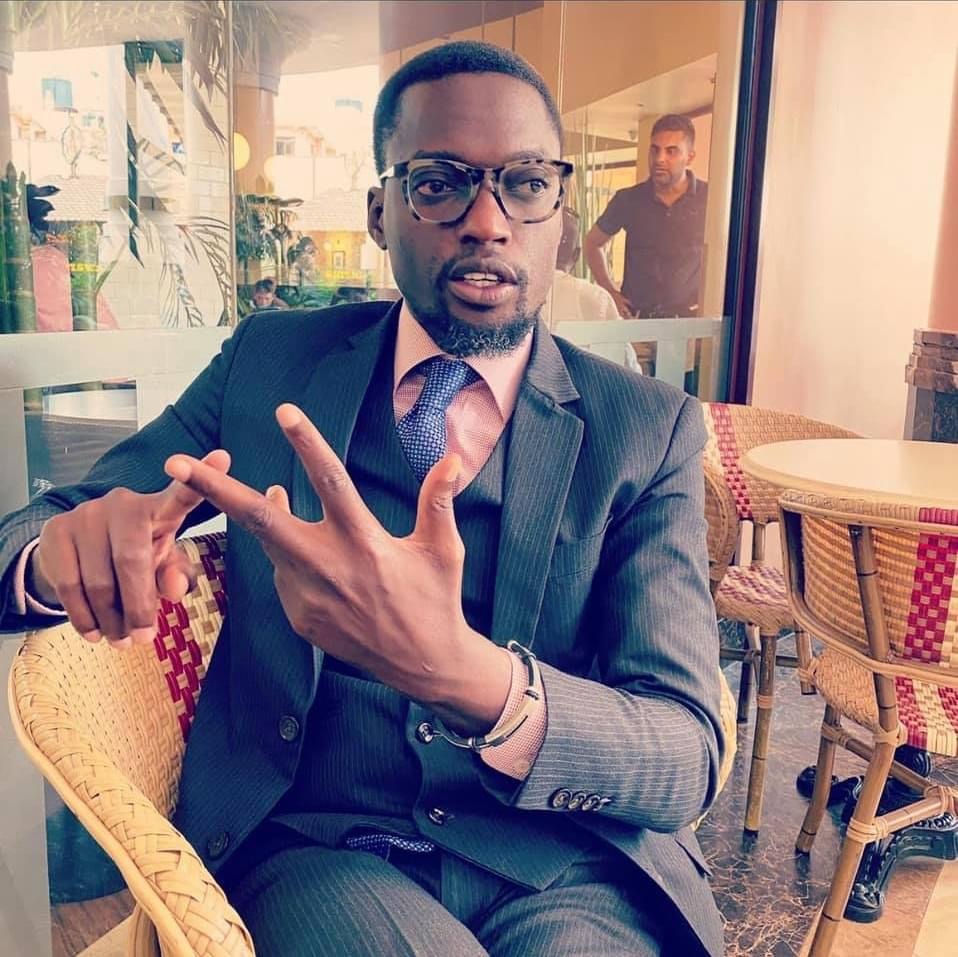

Julius Galisonga elaborates more on the matter of Ham Kiggundu Vs Diamond Trust Bank
Senior counsel and advocate Julius Galisonga has published his understanding of the commercial case between City businessman Hamis Kiggundu aka Ham Vs Diamond Trust Bank (U) and Diamond Trust Bank (K). Posting on his social media, the advocate explained in details the state of the case. Below is his full statement on the matter;
Every once in a while, courts make decisions that upset whole industries and realign the way the industry operates, causing wholesale changes right up to for example, the agreements operational in such industry, even the wording of such documents.
In Uganda, these cases are many, including Frederick J.K Zaabwe Vs. Orient Bank Ltd and 5 others, Sinba (K) Ltd and 4 others Vs. Uganda Broadcasting Corporation, Sam Kuteesa and others Vs. Attorney General, etc. The salient feature among these cases is that they stated the obvious, but which obviously had long since been abandoned by the losers, yet just a little caution would have prevented such gross implications of the decisions. If I must add, the decisions led to loss of colossal sums of monies.
The same can be said of the decision of Hamis Kiggundu aka Ham and others Vs. Diamond Trust Bank. From the reaction of other banks, the Uganda Bankers’ Association and the hastily released Statement from the Ministry of Finance, its clear that the decision has upset the whole Banking industry, development partners and of course Government.

One thing every Ugandan must understand, is that one of the most regulated industries in the world, is the banking and financial industry. The requirements to operate a bank or financial institution are onerous, to qualify to serve in certain positions in a financial institution are quite high. This is the more reason that whoever is a player in the Banking industry, should, before getting upset, understand the reasoning of the Learned Judge.
The reasons are obvious for such control, the need to protect the economy, the need to collect taxes and attendant revenue, the need to protect citizens generally, the banking customers and to prevent organized crime and money laundering, etc. the more reason why the decision of court in Ham Vs. DTB is very important to every Ugandan.
Ham Kigundu and others filed HCCS No. 43 of 2020 against Diamond Trust Bank (U) Ltd and Diamond Trust Bank (K) Ltd, seeking among others the recovery of monies unjustly and illegally obtained from the 1st Applicant’s bank accounts and for various breaches of contractual, fiduciary and statutory duties.
Subsequently Ham filed an amended plaint, where inter alia he specifically raised questions of the illegality of Diamond Trust Bank (K) Ltd conducting of financial institutions business in Uganda without a license to do so under the Financial Institutions Act, 2004 (as amended). It is on this later complaint that the whole case was decided .


Advocate: Julius Galisonga has explained in details Ham Vs DTB case
It was argued for him that Diamond Trust Bank (K) Ltd illegally conducted financial institution business without a license and/ or in contravention of the Financial Institutions Act (2004) as amended, it was further argued for Ham and others that the financial transactions that the Diamond Trust Banks arrived at with Ham and Others were contrary to the Financial Institutions Act 2 of 2004 (as amended) since the Diamond Trust Bank (K) Ltd did not have a license to operate in Uganda but issued credit facilities to Ham and others who are residents of Uganda in addition to the fact that the 1st Respondent acted as an agent of the 2nd Respondent in order to facilitate the said financial transactions which was illegal and contrary to the Financial Institutions Act.
From the onset, the expression “financial institutions business” must be understood. It is defined under section 3 of the Financial Institutions Act, Act 4 of 2004 as amended by section 3 (k) & (l) of Act No. 2 of 2016 to include the extending or lending money held on deposit by way of financing of commercial transactions, consumer and mortgage credit as well as engaging in foreign exchange business with the 2nd Respondent being a foreign bank engaged in the business of lending or extending money held on deposits through mortgage credit and financing of commercial projects which acts were required to be licensed by Bank of Uganda even for a foreign bank and thus was illegal and expressly prohibited under the Financial Institutions Act where no prior license was obtained.
According to Counsel for Ham and others, there was sufficient evidence to show that the alluded financial institutions business was commenced in Uganda as the mortgage facility letter was drafted in Uganda by Ugandan lawyers and even witnessed in Uganda and further that Ham and his Companies were Ugandan companies based in Kampala, Uganda and issued securities for the loan facilities through mortgages, debentures and other securities registered in Uganda and that the 2nd Respondent never sought the permission of the Bank of Uganda to carry out its business in Uganda as required under sections 4 (1) and 117 of the Financial Institutions Act, which is rendered a crime under S. 126 (3) of the Financial Institutions Act and Regulation 5 of the Financial Institutions (Agent Banking) Regulations 2017.


This then left the question to be determined at that stage, the legality of the contracts enter into by the parties, which decision led to a finding that they were not.
In a Letter of Offer dated the 23rd October, 2017 from Diamond Trust Bank (K) Ltd to Ham and others, titled Establishment of a term loan for USD 4,000,000 (United States of America Dollars Four Million), Diamond Trust Bank (K) Ltd wrote thus: “By accepting this Letter of Offer you irrevocably authorize Diamond Trust Bank (U) Kampala who are our appointed agents for this lending to debit your account held with them with the said appraisal fee and taxes simultaneously with establishment of the facility in the banks books and on each anniversary of the term loan and remit funds to us.
All the Banks had to do was seek approval and or license from the Central Bank of Uganda and or any other authorized entity. They did not.
Section 126 (3) of the Financial Institutions Act, 2 of 2004 As Amended provides that; A financial institution which does any act prohibited by this Act or fails to do anything required by this Act commits an offense and where no specific penalty is provided the financial institution is liable on conviction to a fine not exceeding two hundred and fifty currency points and in the case of a continuing offense to an additional fine not exceeding fifty currency points for each day on which the offense continues.
While Regulation 5 (1) of the Financial Institutions (Agent Banking) Regulations 2017 expressly bars such a transaction if not approved by Bank of Uganda it provides that: “A financial institution shall not conduct agent banking in Uganda without the prior written approval from the Central Bank.
It needs to be emphasized that the terms of these sections of the law are couched in mandatory terms coupled with punishment for none compliance, which beyond doubt makes it absolutely mandatory to comply with them.
The question that then remains to be seen is, can DTB (K) Ltd and DTB (U) Ltd or even Ham and others Recover any money from such a clearly illegal transaction, expressly barred by Law?
The moralists would argue that Ham, having received the money cannot let to go scot free without refunding it, even if Diamond Trust Bank (K) Ltd did not have a license to lend to him in the circumstances.
This question has been considered in several leading authorities in the common law the locus classic-us being the now famous case of Fibrosa Spolka Akajjna vs Fairbran Lawsan Combe Barbour Ltd (1943) AC 32 in which Lord Wright observed, in justification of refunding money or benefit derived from a frustrated contract, basing on the doctrine of unjust enrichment and the remedy of restitution, as follows;
“The Claim in the action was to recover a prepayment of pounds 1, 000, mad on account of the price under a contract which had been frustrated. The claim was for money paid for a consideration which had failed. It is clear that any civilized system of law which is bound to provide remedies of cases of what has been called unjust benefit, that is to prevent a man from retaining the money of or some benefit derived from another which is against conscience that he should keep.”
The Court of Appeal in Uganda Broadcasting Corporation Vs. Sinba (K) Ltd and others, considered these positions. The case arose from a sale of UBC land without prior approval of the Minister. Specifically, Section 6(a) of the UBC Act stipulates that UBC could only sale or otherwise dispose of property subject to ‘prior approval of the Minister’; Court stated at length that ;
“There was no contract to enforce. In his own words at page 26 of his Ruling the learned judge correctly states the position of the law as follows:- “No court ought to enforce an illegal contract or allow itself to be made an instrument of enforcing obligations alleged to arise out of a contract or transaction which is illegal once the illegality is duly brought to the notice of the Court”.
He went ahead to rely on the Supreme Court case of Active Automobile Spares versus Crane Bank & Rajesh Pakesh (supra) in which the Supreme Court held that courts of law will not enforce an illegal contract. In that case the Supreme Court went on to hold that where a person invoking the aid of the court is implicated in the illegality courts of law would not come to his assistance. And that it matters not whether the defendant has pleaded the illegality or not. If the plaintiff proves illegality the court ought not to assist him.
Indeed Kakuru JA in the lead judgement distinguished the above Fibrosa case when he said that it must be considered that the contract in Fibrosa was not illegal. So there was good reason to order a refund.
The above principle of law was followed in the case of Nipun Norattam Bhatia Versus Crane Bank Ltd (Civil Appeal No. 76 of 2006) (unreported) in which court refused to enforce an illegal contract and declined to make any orders that would assist any of the parties. By doing so it refused, for good reason I must add to allow itself to be made an instrument of enforcing obligations arising out of a contract it had held was illegal”.
From the above statement of. The court of Appeals it appears to be the basic principle of law, that in cases of illegal contracts and contracts riddled with illegalities the Loss falls where it lies. Meaning no money can move from one side to another. Each party bears its loss.
It is on this basis that I would argue that if there is any outstanding balance under the illegal contract that was still due and owing from Ham and others to the Banks, then the Banks may not be in a position to recover the same, the same having been the product of an illegal undertaking.
It will be noted that the learned Judge also directed that the banks refund Ugx. 34,295,951,553/= (Uganda Shillings Thirty–Four Billion Two Hundred Ninety-Five Million Nine Hundred Fifty –One Thousand Five Hundred and Fifty-Three Only) and USD. 23,467,670.61 (United States Dollars Twenty-Three Million Four Hundred Sixty-Seven Thousand Six Hundred and Seventy Only) being monies that were unlawfully taken by them from the Applicants / Plaintiffs loan accounts to Ham and others.
My view is that considering that both parties were complicit in this illegality, it would run counter to established principles stated above and reiterated in the UBC Vs Sinba Case, the import of which is that the loss falls where it lies.
Many foreign banks which open up subsidiaries in other countries do this, where they under capitalize the “local” banks, which then keep relying on the parent bank whenever large sums of money are needed, rather than get the proper licensing from regulatory authorities, then come up with schemes where the parent bank purports to advance the loan, the local bank serves as the collection and lending agent and then transmits the money to the parent bank. This scheme facilitates a lot of money laundering, evasion of taxes which may include income taxes on interest earned, stamp duties on mortgage deeds, of course even the licensing fees that accrue when the License is applied for, etc.
It can be rightfully argued that the decision is bad for the Banking industry, especially when you consider that many banks are bound to lose colossal sums of money, Others have argued that this decision is bad for syndicate Lending.
Having read the judgment, I have not read anywhere, where the learned Judge stated that Banks and merchants shouldn’t engage in syndicated banking. All the case implies and I believe rightly so, is that whatever lending devices financial institutions want to engage in, they must do so in accordance with the law! It cant have been for idle purposes that the Legislature enacted many acts and regulations.
Moreover even the most casual look at this so call “loan syndication” one can tell that theres nothing like syndication here, beyond a scheme where one bank fronts another, unless syndication has lost meaning.
Therefore, a more important argument would be that its worse for the banking industry if banks are allowed to operate outside the law, even a football game has rules!, for its these rules which protect everyone involved.
In the meantime, URA must pick interest in any such schemes and transactions to see any tax matters arising. Just as BoU should stop
Sleeping on the job!
Julius Galisonga, Advocate
MBA




